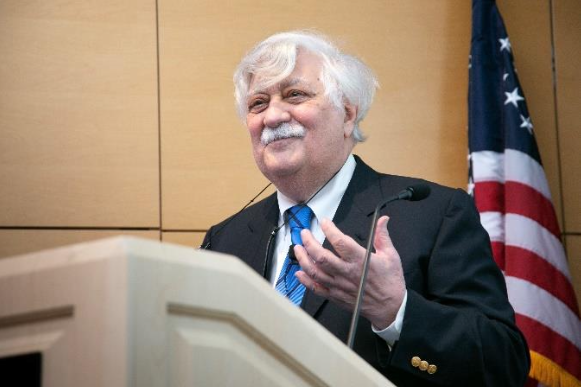
Please check back for additional offerings
Harvard Medical School’s Department of Global and Continuing Education accredits an exciting one-day online course entitled Trauma-Informed Care (TIC): Optimizing the Role of TIC in Mainstream Clinical Practice. In this course, a multidisciplinary group of experts will present on optimizing the role of trauma-informed care in mainstream clinical practice. The number of traumatized patients in a primary healthcare setting is estimated at 23% of all patient visits. This includes early life experiences related to childhood abuse, gender-based violence, and the tragedies experienced in everyday life, including serious medical illnesses. Most primary health care practitioners have also encountered individuals coming from war zones, armed conflict, and other disasters who have experienced torture, rape, and other highly traumatizing life events in addition to displacement and forced migration. This course includes not only a comprehensive introduction to the TIC model, but also culturally-valid and evidence-based instruments to aid in the diagnosis and treatment of culturally diverse patients. The TIC physical exam, the neuroscience of trauma, stress, and resiliency, counseling, the Trauma Story, coping with the challenges of emergency nursing, and self-care will be addressed.
The majority of health practitioners are well aware of the traumatic life experiences of their patients and their families. However, few have been trained in eliciting the patient’s trauma story, identifying, and treating trauma-related illnesses, and the counseling of traumatized persons and family members. Plus, health practitioners have the burden of time constraints and the challenges of multitasking for a heavy caseload. In addition, highly traumatized patients can cause considerable empathic distress in the health care worker.
The Harvard Program in Refugee Trauma (HPRT) has four (4) decades of pioneering the care of highly traumatized patients in the USA and abroad. HPRT has worked closely with the creators of the Trauma-Informed Care Movement at Substance Abuse and Mental Health Services Administration (SAMHSA) and has participated in the integration of trauma informed care into primary health care for all patients.
This course includes not only a comprehensive introduction to the trauma informed care model, but also culturally valid and evidence-based instruments to aid in the diagnosis and treatment of culturally diverse patients. Counseling, the Trauma Story, coping with the challenges of nursing, preparing to engage the refugee/immigrant patient, and self-care will also be addressed.
A multi-disciplinary team of nationally recognized experts will provide technical assistance and knowledge transfer suitable for everyday practice of clinical care.
Recordings of all sessions will be made available for viewing online, at your convenience, for 60 days after the conclusion of the course.
Learning objectives
- Comprehensive and concise update on the role of trauma-informed care in mainstream clinical practice.
- Guidance on identifying and treating traumatized patients and family members.
- Learn how to evaluate and counsel traumatized patients using a culturally-effective Trauma Story approach.
- Obtain strategies to improve the clinical relationship and clinical outcomes of culturally-diverse patients.
- Understand the important role of trauma-informed care in nursing.
- Master the special attention needed to care for highly-traumatized patients.
Benefits of the program include:
- HPRT 11-Point Clinical Toolkit
- New H5 Model
- The Trauma Story
- HSCL-25, HTQ and other evidence-based screen instruments
- TIC Physical Examinations
- Neuroscience of Trauma, Stress, and Resiliency
- Balint Group Experience
- Cultural Communication with Traumatized Populations
- TIC Pocket Cards
Who should attend?
Physicians in Psychiatry, Primary Care, Pediatrics, Women’s Health, Residents, Interns, Physicians Assistants, Nurse Practitioners, Nurses, Mental Health Practitioners, Medical Students, and Healthcare Practitioners caring for refugees, immigrants, and other highly traumatized populations.
On Healing from Trauma:
“Two people working together in an empathic partnership in a community to create a new healthy worldview”. — Dr. Richard F. Mollica
The course will be taught by nationally-renowned TIC medical and mental health experts, including the Harvard Program in Refugee Trauma (HPRT) at Massachusetts General Hospital. HPRT has spent over 40 years caring for survivors of extreme violence and trauma.

Harvard Medical School, Professor of Psychiatry 2022 Recipient of the Harvard Medical School Lifetime Achievement Award for Equity, Social Justice, and Advocacy
Faculty
| Richard F. Mollica, MD, MAR | Director, Harvard Program in Refugee Trauma; Professor of Psychiatry, Harvard Medical School |
| Eugene F. Augusterfer, LCSW | Deputy Director, Harvard Program in Refugee Trauma, Massachusetts General Hospital; Licensed Clinical Social Worker |
| Sadie Elisseou, MD | Primary Care Physician, VA Boston Healthcare System; Clinical Instructor of Medicine, Harvard Medical School; Adjunct Instructor of Medicine, Boston University School of Medicine |
| Karen Carlson, MD | Senior Faculty, Division of General Internal Medicine, Massachusetts General Hospital; Physician Investigator, Mass General Research Institute; Associate Professor of Medicine, Harvard Medical School; Credentialed Leader and Supervisor, American Balint Society |
| Gregory L. Fricchione, MD | Associate Chief of Psychiatry and Director, Benson-Henry Institute for Mind Body Medicine; Director, Chester Pierce Division of Global Psychiatry; Co-Director of the McCance Center for Brain Health, Department of Neurology, Massachusetts General Hospital; Mind Body Medicine Professor of Psychiatry, Harvard Medical School |
| Quyen Ngo-Metzer, MD, MPH | Professor, Department of Health Systems Science, Kaiser Permanente School of Medicine |
| Annie Lewis- O’Connor, PhD, NP- BC, MPH, MSN, FAAN | Founder & Director, C.A.R.E. Clinic; Associate Scientist, Division of Women’s Health, Department of Medicine, Brigham and Women’s Hospital; Instructor, Harvard Medical School |
| Fanny Y. Cai, BS | Harvard Program in Refugee Trauma, Massachusetts General Hospital, Research and Program Coordinator |

Course Agenda*
| 8:30am to 9:00am | Introduction — Richard F. Mollica, Eugene F. Augusterfer, and Fanny Y. Cai |
| 9:00am to 10:00am | Comprehensive Overview of Trauma — Informed Care – Eugene F. Augusterfer |
| 10:00am to 11:00am | Trauma-Informed Care: Guidance on Identifying and Treating Traumatized Patients — Richard F. Mollica |
| 11:00am to 11:15am | Coffee Break |
| 11:15am to 12:15pm | Neuroscience of Stress and Resiliency — Gregory Fricchione |
| 12:15pm to 1:15pm | Lunch Break |
| 1:15pm to 2:15pm | Strategies for Caring for Culturally Diverse Patients — Quyen Ngo-Metzger and Kimberly Chang |
| 2:15pm to 3:15pm | Integrating Trauma-Informed Care into Health Care Systems — Annie Lewis-O’Connor |
| 3:15pm to 3:30pm | Coffee Break |
| 3:30pm to 4:30pm | Trauma-Informed Clinical Skills — Sadie Elisseou |
| 4:30pm to 5:30pm | Coping with Empathic Distress – The Balint Group Experience — Karen Carlson |
| 5:30pm to 6:00pm | Sharing Resources — Richard F. Mollica, Eugene F. Augusterfer, and Fanny Y. Cai |
*Times are listed in Eastern Standard Time
Admissions criteria
Several criteria will be used to assess eligibility for the training, including:
- This course is designed for those working with traumatized persons, families, and communities, to include, doctors, residents, interns, fellows, medical students, nurse practitioners, physician’s assistants, nurses, psychologists, clinical social workers, and those working in humanitarian settings.
- Persons wanting to learn more about working with traumatized populations and evidence-based best practices in trauma informed care.
- Access to computer and internet.
- Written, spoken, and reading proficiency in English.
Accreditation
In support of improving patient care, Harvard Medical School is jointly accredited by the Accreditation Council for Continuing Medical Education (ACCME), the Accreditation Council for Pharmacy Education (ACPE), and the American Nurses Credentialing Center (ANCC), to provide continuing education for the healthcare team.
Physicians
The Harvard Medical School designates this live activity for a maximum
of 8.00 AMA PRA Category 1 Credit(s)™. Physicians should claim only the credit commensurate with the extent of their participation in the activity.
Physician Assistants
The National Commission on Certification of Physician Assistants (NCCPA) states that AMA PRA Category 1 Credit(s)™ are acceptable for continuing medical education requirements for recertification. We would also suggest that learners check with their state licensing board to ensure they accept reciprocity with AMA PRA Category 1 Credit(s)™ for re-licensure.
Nursing Accreditation
Harvard Medical School designates this live activity for a maximum of 8.00 ANCC contact hours.
Canadian Accreditation
The Royal College of Physicians and Surgeons of Canada recognizes conferences and workshops held outside of Canada that are developed by a university, academy, hospital, specialty society or college as accredited group learning activities.
European Accreditation
The American Medical Association (AMA) has an agreement of mutual recognition of continuing medical education (CME) credit with the European Union of Medical Specialties (UEMS). Additional information regarding this agreement may be found here: https://www.uems.eu/areas-of-expertise/cme-cpd/eaccme
ABMS/ACGME Competencies
This course is designed to meet the following American Board of Medical Specialties (ABMS)/Accreditation Council for Graduate Medical Education (ACGME) competencies:
Patient Care and Procedural Skills, Practice-Based Learning and Improvement, Professionalism, System-Based Practice, Interpersonal and Communication Skills, and Medical Knowledge.
IOM Competencies
This course is designed to meet the following Institute of Medicine Competencies:
Provide Patient-Centered Care, Employ Evidence-Based Practice, and Work in Interdisciplinary Teams.
Disclosure Policy
In accord with the disclosure policy of the Medical School as well as standards set forth by the Accreditation Council for Continuing Medical Education (ACCME), course planners, speakers, and content reviewers have been asked to disclose any relationships they have to companies whose primary business is producing, marketing, selling, re-selling, or distributing healthcare products used by or on patients. In addition, faculty have been asked to list any off-label uses of pharmaceuticals and/or devices for investigational or non-FDA approved purposes that they plan to discuss.
Disclaimer
CME activities accredited by Harvard Medical School are offered solely for educational always consult additional sources of information and exercise their best professional judgement before making clinical decisions of any kind.
Note: AMA PRA Category 1 Credit(s)™ is calculated based on submission of a preliminary agenda and may be subject to change.
Participation in the course is required for CME credits and the certificate of completion from the Harvard Program in Refugee Trauma.

Please check back for additional offerings

Please check back for additional offerings


